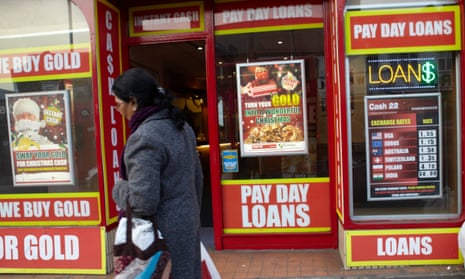Millennials are missing out on the boom in cheap credit and using expensive payday loans, because poor credit scores lock them out of the best deals.
Borrowers born after 1982 are typically paying a higher rate on loans and credit cards than those born earlier, according to analysis of more than 150,000 credit files.
The study, undertaken by the charity Toynbee Hall and the employee loan firm SalaryFinance and shared with the Guardian, found that younger borrowers were twice as likely to have taken out high-cost payday loans than those from the baby-boomer generation, and on average had used them twice as often.
The analysis found that millennials were much more likely to have poor credit records than older people. This is in part because they do not have a track record of payments, but also because the use of payday loans drags scores down.
Carl Packman, Toynbee Hall’s research manager, said young people were finding it difficult to access mainstream finance that helps to build their credit score.
“With few choices, and the pressures of low-wage jobs and increased insecurity, borrowing money out of necessity can only be done through alternative finance like payday lenders or friends and family, and not everyone has the luxury of the latter,” he said.
“Not only are the borrowing costs of a payday loan much more expensive than with mainstream finance, we can now demonstrate very strong evidence that it is having a detrimental effect on people’s credit scores and therefore their ability to build up that score and access cheaper forms of finance in the future.”
Loan and credit card providers have battled to top the best-buy tables in recent years. Rates on personal loans have fallen to record lows, with several banks now offering borrowing of up to £15,000 at an interest rate of just 3%.
Banks, meanwhile, have sought to attract credit card customers with longer and longer interest-free periods. Virgin Money recently launched a credit card offering customers 30 months of interest-free spending.
Older borrowers are able to get approval for these deals, but millennials are paying more. The analysis showed that for unsecured loans of up to £5,000, the average rate paid by adults born after 1982 was 18%, compared with 16% for those born between 1965 and 1981 and 15% for those born between 1946 and 1964.
The older baby boomers had typically taken out four payday loans each, while millennials had taken more than seven.
Packman said: “I think for many younger people the relative ease at which a payday loan can be obtained, compared with a small-sum personal loan from a bank or arrangement of a higher overdraft limit, has outweighed the potential risk of falling into a debt cycle. This has contributed both to the attraction and normalisation of a payday loan.
“Their lack of a financial track record counts against them and often the only answer left for them is to take out credit products like payday loans which, whether we like it or not, is damaging to credit scores and their ability to climb the credit ladder to more affordable forms of finance.”
Andrew Hagger, a personal finance expert at the website MoneyComms, said lenders looked at a range of factors to judge people’s creditworthiness, and many went against younger borrowers. “They might ask, for example, how long you have been in your job, which of course is going to count against millennials.”
Hagger said millennials were often caught in a “catch-22. If you can’t get finance it is difficult to build a credit record”.
Asesh Sarkar, chief executive of SalaryFinance, said: “With millennials set to make up 50% of the global workforce by 2020, there is an increasing need for employers to step up and support this group of workers who are cut out of mainstream finance.
“The government’s identification of the problems of the just about managing (Jams), who have less than a months worth of savings in the bank, support our urgent calls for better financial support systems for people in work but struggling.”










